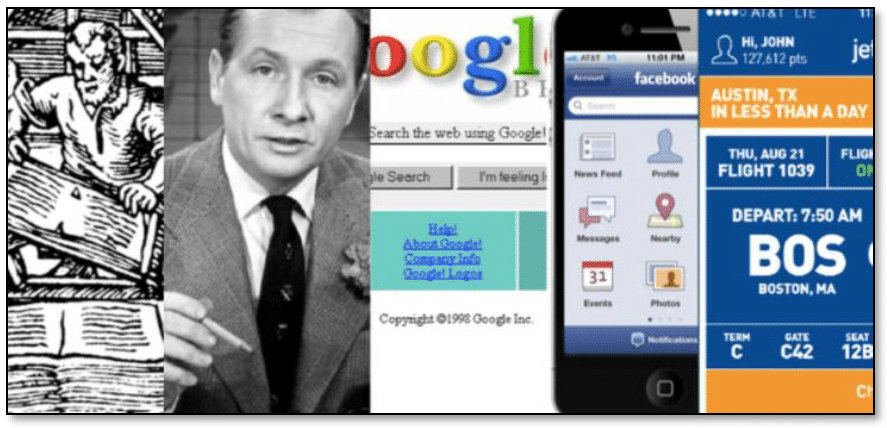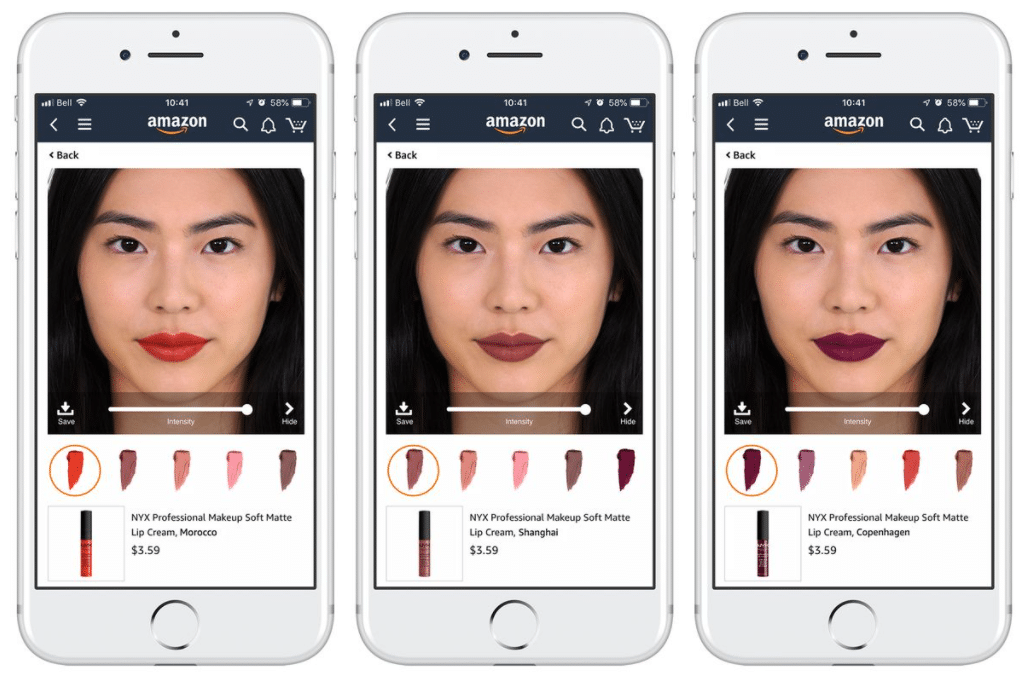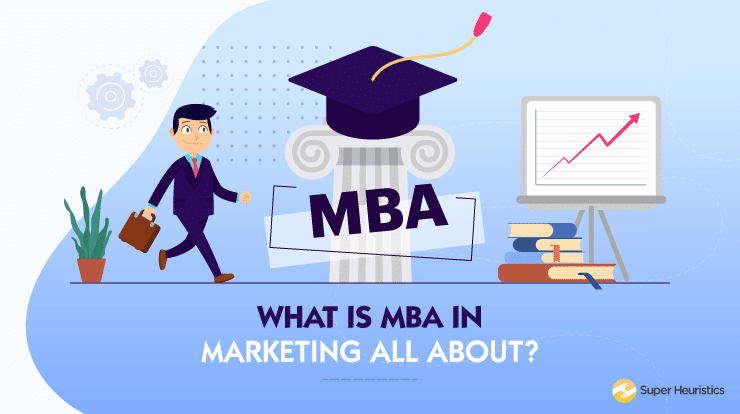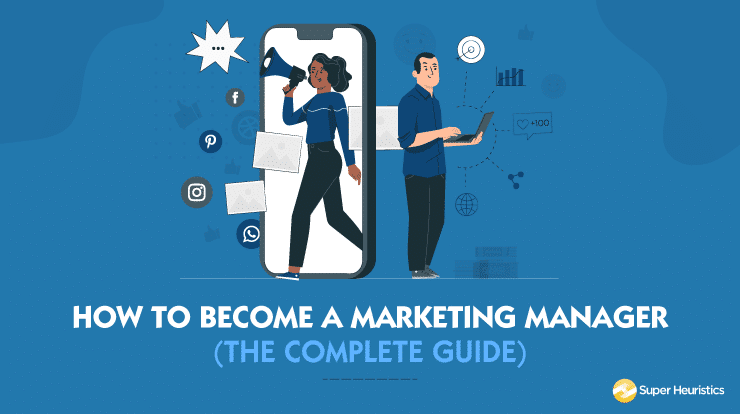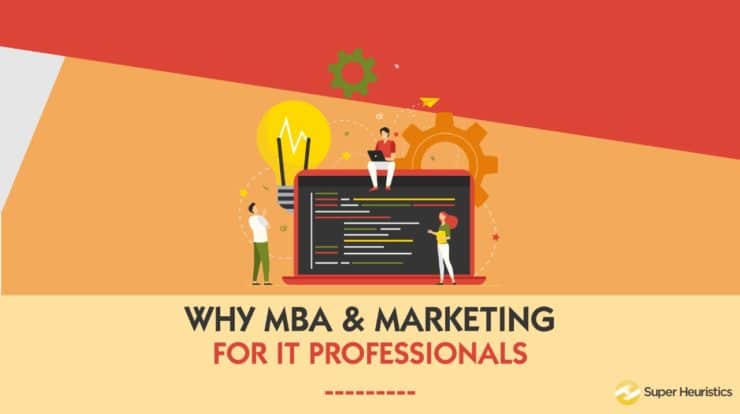
Making that big decision to give up the perks of a well-paying job and getting out of your comfort zone is not easy. There is this one big question that first bothers you and thereafter other people start bothering you with. Why MBA for IT professionals?
I’ll try to straighten out the situation for you.
What are some of the Industry buzzwords you need to know for 2020?
✓ Data Analytics
✓ SAAS- Software as a Service
✓ Artificial Intelligence
✓ Internet of Things
✓ Virtual Reality, the list goes on and I think my friends in IT can summarize it much better.
It’s not a coincidence that according to Flexera 2020 State of Tech Spend Report, the average IT spend across industries was 8.2 percent of the total revenue.
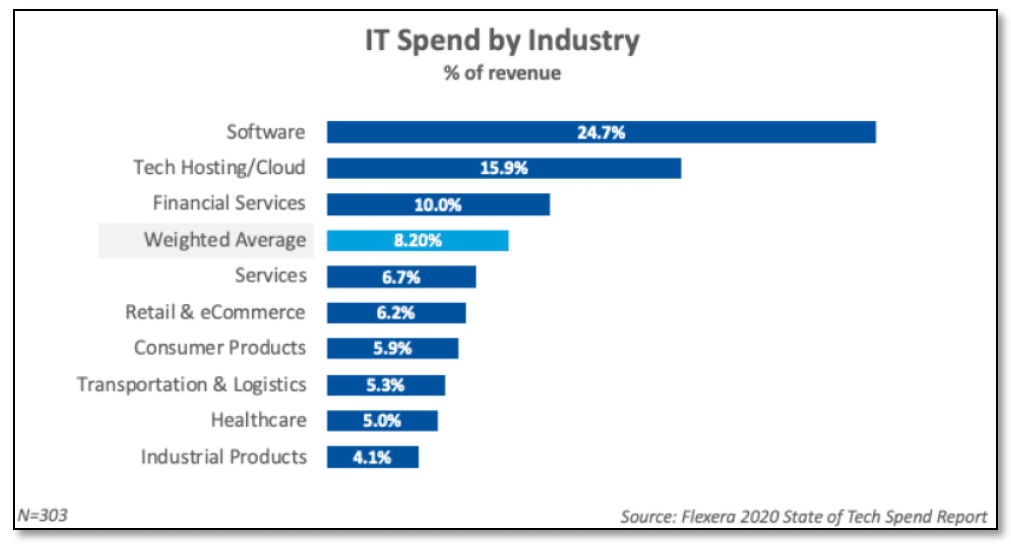
In the above infographic you see, there are some very traditional industries like Financial Services leading the adoption of technology to streamline their services.
To assimilate the above two situations together, we can make out that technology is moving fast. And the industries need to catch up.
Why are businesses doing that? Why the fast-paced adoption? And what is its relevance in terms of considering MBA for IT professionals?
Just take a moment and think for yourself. For how many services you have to actually leave your homes? Like there is no technological substitute for it? I bet you can count them on fingers.
You need grocery, we have Grofers for you. You want fresh produce; we will get them delivered via Big Basket. You need to watch a movie, just log on to any OTT option and you are all set. You want to watch a movie while relaxing in Spa, call out an Urban Clap agent.
This is how businesses are thinking in order to change the game of Customer centricity. Personalization and User Experience have made it to the mission statements of organizations. And all those buzz words that I wrote earlier are making the change happen.
Let’s tweak Philip Kotler’s words a bit- ‘Businesses are trying to deliver customer needs profitably’. This not only needs the hard skills to understand and build technology but also requires the right business acumen to deliver products and services at profit and compete in the market.
With all that information, haven’t we already started to conceptualize a spot-on answer to the question- Why MBA for IT Professionals? But hey, you got to keep reading because this time we are leaving no room for doubt.
We quickly try to jump on to our next speculation- Why marketing for an IT professionals?
To put some context to it, data from 2019 from Gartner shows that the technology budget allocation by marketing leaders has seen an increase from 22% to 29%. On the contrary, there are a few CMO’s and CIO’s who have the right balance of both worlds-business and tech. My friends until now would have realized the supply and demand gap.
I am no practicing Marketer myself, which is why I’ll want you to read what established marketers have to say about technology.
Read this to find more: 2020 - 2030: Decade of deep tech disruption in marketing and advertising
I was surprised to know that there are formal positions for ‘translators’ in organizations. The CMOs need them to understand technology and the CIOs need them to understand business and consumer behavior. That is how the two departments collaborate!
Let’s try to delve a bit deeper and try to come up with concrete answer for why MBA for IT professionals makes complete sense both for people deciding to go for an MBA as well as those currently pursuing MBA.
Why MBA for IT professionals?
Most of us aspire to make it to the table of C-Suite Executives as far as our professional goals are concerned. An MBA is considered a degree that has the power to supercharge both your career as well as your personality. Let’s look at some of the reasons for opting for an MBA for IT engineers:
✓ Career Long-sightedness: When we join industry just after graduating, we are mostly assigned to one particular technical aspect of the industry. That does not help us in understanding the business aspects which is the key in decision making roles that one encounters going up the ladder.
✓ Career Shift: MBA is the most flexible degree that exists. It gives a second life to the career choices that you’ve made and lets you make informed decisions about the career path you envisage for yourself.
✓ Greater Career Satisfaction: An MBA with its interactive format instills confidence and develops individuals into team players. Leadership roles in IT would demand managing a team, taking analytical decisions, meeting clients, pitching our products and what not!
We sure know that MBA grads are some of the highest paid individuals in the country so that helps in fulfilling the monetary aspirations.
At this juncture, I would also like to inform the IT professionals of the superpower you possess at this time for the industry.
The industry knows that you have mastered some of the most vital technical tools like Management Information System, web and app development, database modelling and plenty of others. Also, all industries are adopting digital technologies and IT is no more a back-end job.
But even an IT leader is expected to lead a team and run critical projects that demand collaboration with all the other departments in the organization. This makes it imperative for IT leaders to be Bilingual- To understand the language of both Technology and Business.
I am pretty sure that by this time we can answer the question- Why MBA for IT professionals with utmost clarity.
What are the career paths for Software engineers after MBA?
Let’s start by looking at the traditional career path for Software Engineers.
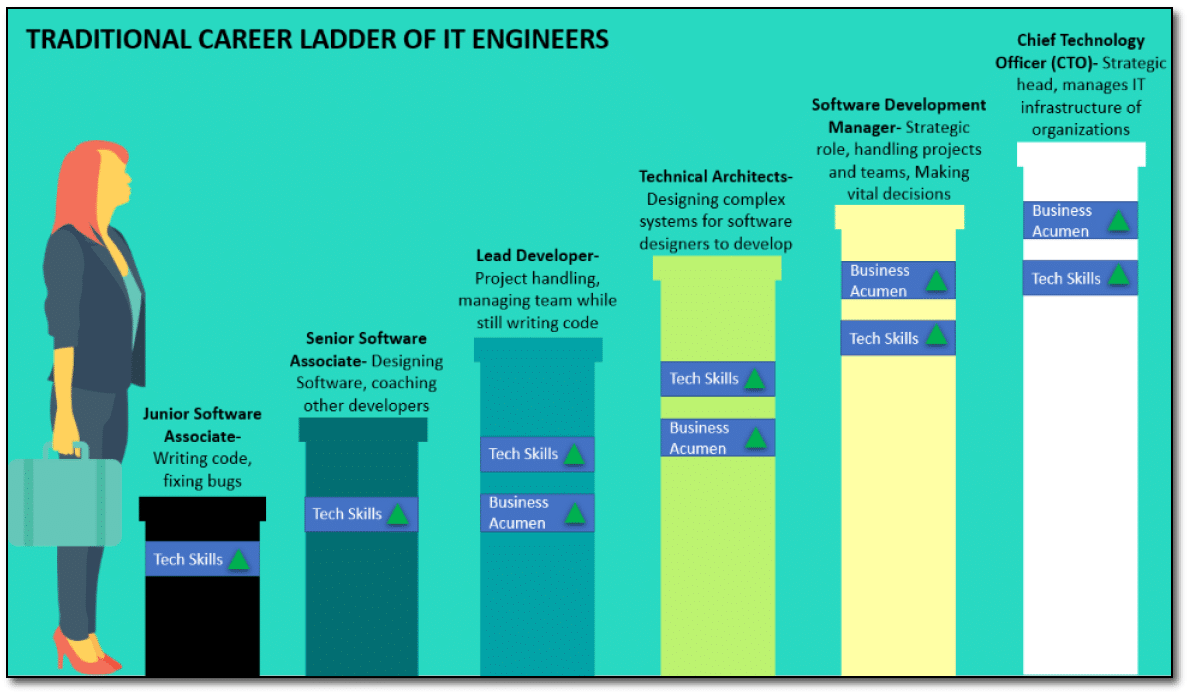
While it is elementary to develop technical skills to move up the ladder, most strategic and decision-making roles are held by people who are both tech savvy and understand consumer and business.
Sectors like Banking and Finance, Manufacturing, FMCG & Retail and government are fast adopting digital technologies and this has diversified the role IT engineers have to play in the industry. The IT department has become ‘Consumerised’.
Which brings us to understand Career path for software engineers after MBA and we will also figure out Which MBA specialization is best for software engineers.
✓ IT Consulting: Organizations seek help from IT experts in order to understand their use case and come up with a technological solution for their business. With the prior experience in technical domain and business acumen built over the period of pursuing MBA, IT engineers can come up with tailored solutions for their clients.
MBA for IT professionals becomes all the more meaningful when they get an opportunity to work for Tech giants such as KPMG, Deloitte, Ernst & Young and equally magnanimous clients such as Goldman Sachs, Walmart, General Motors, etc.
✓ Product Management: As a project manager, you get to be the CEO of the product you develop. The role demands diverse knowledge in the field of technology, Consumer Behavior, Pricing Strategies and Product performance and hence this role is closely knit with aspects of Marketing and Business.
Seasoned Technology aspirants with the right balance of business acumen get to work with some of the biggest software giants namely Google, Microsoft, Facebook and Amazon.
✓ Business Development or Martech: With Marketing 5.0 revolutionizing how industry experts have thought over the time, Consumer experience has become the eye of the tornado and technology is helping firms achieve that.
The world is talking about tech savvy Chief Marketing Officers and customer oriented Chief Information Officers. There are hybrid roles emerging and experience in IT is becoming increasingly relevant to develop high potential marketers.
On that note, the answer to Why MBA for IT professionals has started making a lot of sense.
When customer is the central point, we have to talk about Marketing. Marketing is evolving as the most technology dependent function. Chief Marketing officers are spending more on technology than their IT counterparts.
Digital Marketing, AI, SAAS and Virtual Reality are changing the landscape of Customer Relationship Management. Customer is generating data at every touch point and smart businessmen are not letting go of that gold.
Marketing 5.0
Marketing is a dynamic field and its changing everyday because the epicenter is changing everyday which is the customer. Technology has always been the fore bearer of change which is very well evitable from the different versions of marketing:
Marketing 1.0- Enabled by the Printing Press
Marketing 2.0- Enabled by broadcast technologies of Radio and Television
Marketing 3.0- Enabled by Computers and Print Press
Marketing 4.0- Enabled by Mobile technology and Social Media
Marketing 5.0- Enabled by Big Data, Cloud Computing, AI and ML
The new era of marketing is driven by Purpose-led marketing, Fast and agile marketers, Digital acceleration and a personalized customer experience.
There are sophisticated tools developed that help predict customer sentiment in real time with up to 90% accuracy. This huge amount of data and organizations that bank on it are able to deliver Delighters to the customers in terms of user experience.
But, Hey! Does this help us in answering our basic questions that we set out with- Why MBA for IT professionals? Why marketing? Can we figure out a highly potent career path for software engineers?
Yes, we can and let’s see how?
Why is it relevant for Software Engineers?
For every transaction that a customer makes, there are at least a dozen influences that might have helped him make the buying decision.
It is important for marketers to be able to gather the data, store it with quality and security and then use it to know the customer at micro level. Its high time marketers stop cramming their data into shoddy excel sheets and then spending time to analyze it.
The thing is, a digital strategist may talk about a particular solution for enhancing user experience or to improve customer relationship management, but it is ultimately the IT guys who are out there writing the code.
More and more CMOs are trying to bring technical professionals on their teams who can have one foot working and managing the technical projects and the other foot analyzing customer preferences and business needs.
Collaboration of IT and Marketing
The marriage between Marketing and IT is inevitable in the current scenario and we are already seeing the product of that collaboration helping businesses achieve higher consumer satisfaction.
✓ Customer Relationship Management Software (CRM): Helping organizations keep track of every stage in the customer journey.
✓ Marketing Automation Software: Have you recently been amazed at the fun and interesting messages that the Swiggy chatbots have been sending you?
I got a message one morning that said Hey man, Why so Serious? That literally made me open the notification and see the content inside it. That is how chatbots are changing the customer engagement game. According to Swiggy, 70% of its customer interaction are happening through automated chatbots.
✓ Analytics and Data visualization solutions: Without measuring the performance of the marketing efforts, it is difficult to ensure whether they are yielding results. That’s where analytics comes in.
✓ Website and App Development: As much as it is important to develop customer friendly websites and apps, it is equally important to have the website landing pages optimized for businesses to do well.
✓ Personalized Solutions via AI and VR: Have you heard of L'Oréal’s recently developed tech solutions- Modiface and Perso. If not, you literally need to know and read about these. It’s a revolution that will make you so proud of the Tech
community.
Modiface is a real time Augmented reality software that lets customers try their make up and hair color virtually. How cool is that!
I will also introduce you to Perso, which is an AI powered at-home system for cosmetics and skin care. It analyses your skin tone and makes tailored cosmetics for you. Doesn’t that sound Sci- Fi movie stuff!
Now, this right here is the final time I ask all my IT friends out there- Why MBA for IT professionals? What does an MBA for IT engineers mean?
And I think that you are out there smiling because you have got answers that are good enough to blow those interviewers away.
All marketers are becoming digital and organizations are creating roles that have a strategic mix of both marketing and technology. Let’s have a look at some of those.
Marketing Jobs of the Future
✓ Chief Marketing Technologist: Most organizations are moving towards this role with the intent that a CMT will serve as a marketing strategist, Creative director and Technology expert. They help in aligning marketing and technology together towards business goals.
✓ Chief Digital Officer: They are ‘Transformers in Chief’ responsible for strategically changing businesses towards digital technologies.
These are not some make believe jobs, there are people who have moved from completely technical roles to occupy the seat as a Chief Technical Officer. Werner Vogels, The Chief Technology officer at Amazon is the best example.
✓ Data Ethnographer: They use numbers to tell a story about how customers interact with the brand. These individuals love to play with numbers and have a very sound understanding of what makes the customers tick.
✓ Head of Bot Creative: These people help leverage technology to create communication that exactly matches the customer’s taste.
That’s a fairly fancy list and it just makes all of us realize the scope that the technology aspirants have in the industry specially keeping in mind the marketing domain. MBA for IT professionals does make a lot of sense now.
Conclusion
- The world is moving towards faced paced, technology driven transactions. Firms are moving towards advanced tech tools that help them analyze consumer insights and provide tailored products for them.
- Organizations are looking out for IT leaders who are not only technology buffs but also have a sound understanding of business. That’s the most pin pointed reason for why MBA for IT professionals makes a lot of sense.
- There are plenty career options for IT engineers after an MBA which includes IT Consulting, Product Management and Marketing Tech.
- Marketing as a function has proven to adapt the fastest to tech solutions. You don’t survive very long as a CMO if you are not capable to understand classic Information technology.
- Organizations are creating roles for ‘Whole Brained’ people- People who have both their left and right sides functional. You need the left or the logical one to understand those algorithms and the Right which is the more creative one to understand the customer and deliver value.

